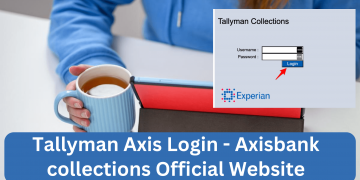Data catalogs are a great way to store and manage data. Brands can use them to store data in various formats, including text, images, and videos. Companies can also use data catalogs to store data in multiple formats, including text, photos, and videos.
Contents
- 0.1 How can a data catalog be used to improve the data quality?
- 0.2 What are the benefits of data catalogs?
- 0.3 How to Start an Online Casino
- 0.4 10 Legal Ways to Make Money From Home
- 0.5 Effective Marketing Strategies: Boosting Success for eCommerce Businesses
- 1 The benefits of data catalogs include the following:
How can a data catalog be used to improve the data quality?
An enterprise can use a data catalog in multiple ways to improve data quality. One way is to use the catalog as a reference to ensure that the data being used is accurate and up-to-date. Businesses can also use the catalog to help identify data quality issues and help to track and correct them. Additionally, companies can use the catalog to help ensure that data is appropriately formatted and structured for analysis. By using the data catalog, organizations can improve the quality and accuracy of their data, which can help to improve business decisions and overall performance.
What are the benefits of data catalogs?

Organizations are generating data at an unprecedented rate, and they are collecting and storing data in more diverse formats than ever before. Unfortunately, the volume and variety of data can make it difficult for organizations to find and use the data they need to make better decisions. Data catalog use cases can help organizations find and use the information they need to make better decisions.
A data catalog is a searchable, browseable, and discoverable repository of data assets. It includes information about the data, such as where it is stored, who created it, when it was last updated, and how it is used. A data catalog can help organizations find the data they need by providing a centralized view of all the data within the organization. It can also help organizations understand their data by providing information about the data format, content, and structure.
People can use data catalogs to improve decision-making in various ways. They can help organizations find and use the data they need to make better decisions by providing a centralized view of all the data within the organization. They can help organizations understand their data by providing information about the data format, content, and structure. Data catalogs can also improve data quality by identifying and correcting database inconsistencies and enabling greater data asset strategy.
The benefits of data catalogs include the following:
- They improve data quality by identifying and correcting data inconsistencies.
- They help organizations find and use the data they need to make better decisions.
- They help organizations understand their data by providing information about the data format, content, and structure.
- They improve data governance by providing a centralized view of all the data within the organization.
- They improve data management by providing information about where the data is stored and who created it.
Data catalog tools offer faster time to value.
How can data catalogs be helpful?
A data catalog can provide a single source of truth for data, making it easier for everyone in the organization to find and use the data they need. This can help reduce the time it takes to get value from data, as everyone will better understand what data is available and how it can be used.
A data catalog can also help improve data quality by identifying and tracking data inconsistencies. This can help prevent data corruption and ensure that data is consistently used across the organization.
Finally, a data catalog can help improve information management by providing a central location for data access and security. This can help ensure that data is only accessed by authorized users and that sensitive data is kept confidential.
How can data catalogs be used to improve data governance?

Data catalogs provide a single source of truth for data assets within an organization, making it easier for data consumers to find the data they need. Data catalogs also improve data governance by providing a centralized place to track data lineage and permissions. Data catalogs apply to many common scenarios, from data analysis to business agility. Make the most of your unstructured data and statistical information with effective data catalogs.











